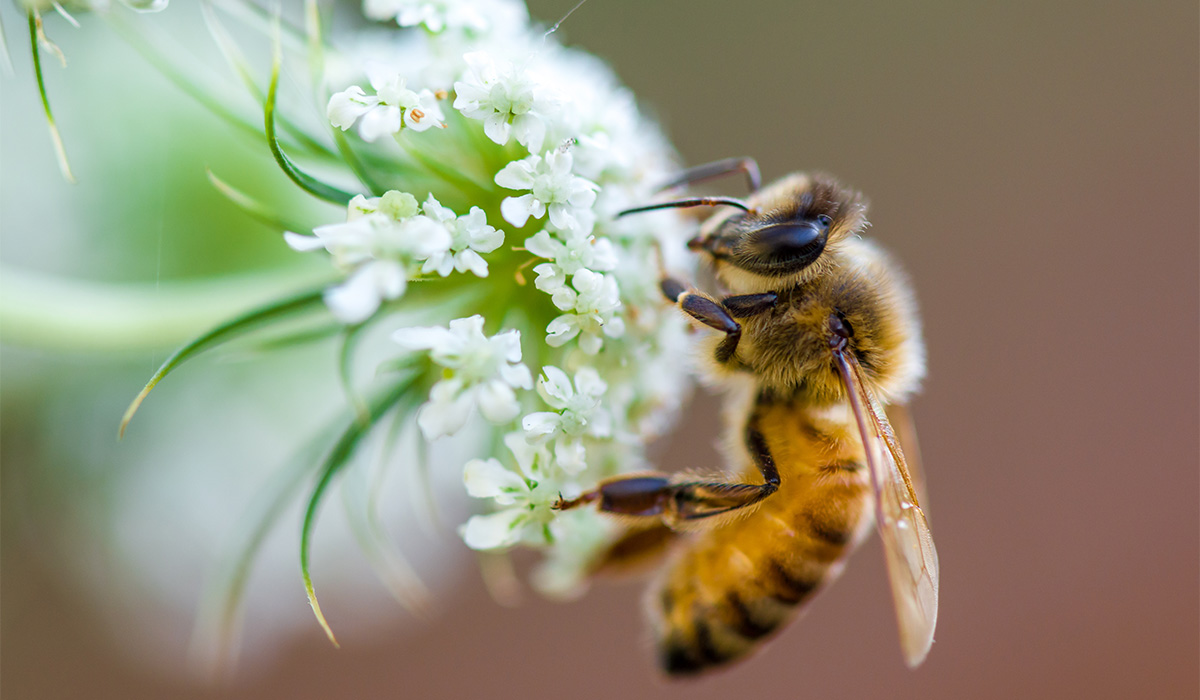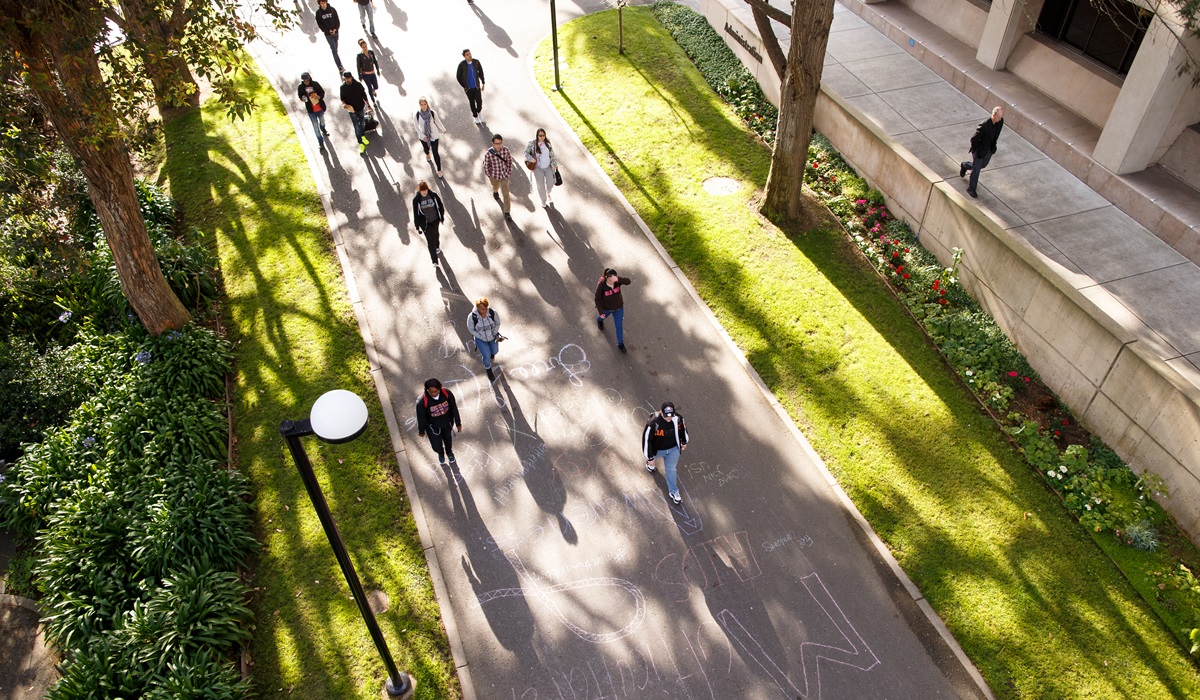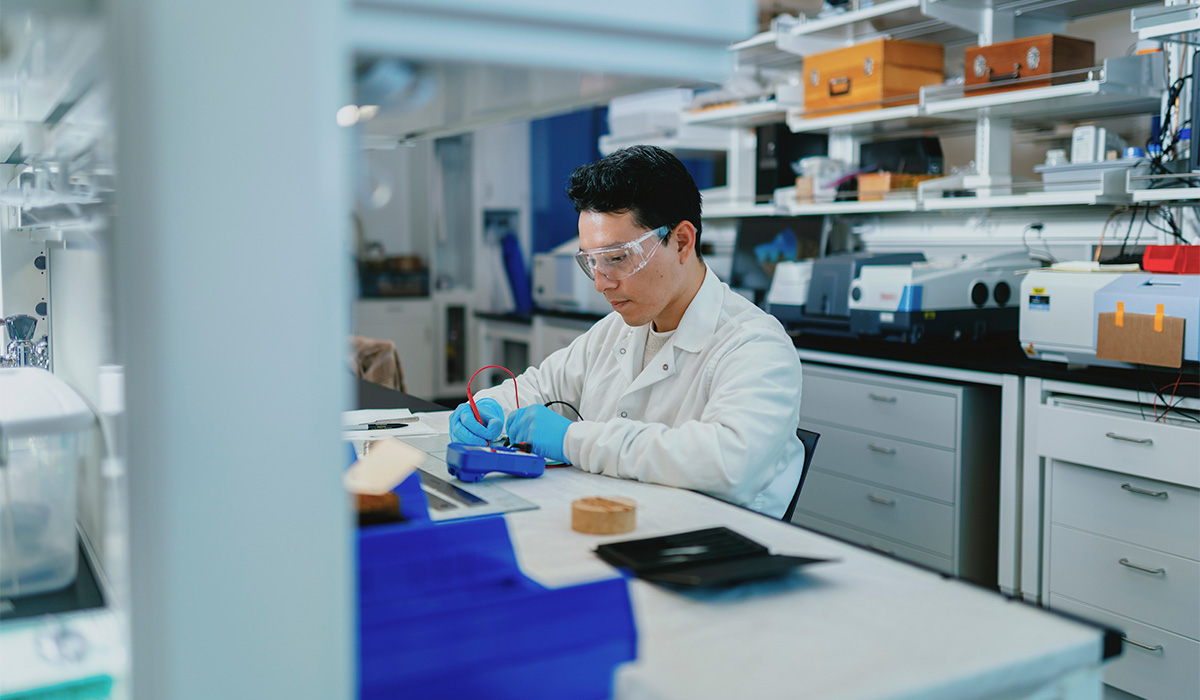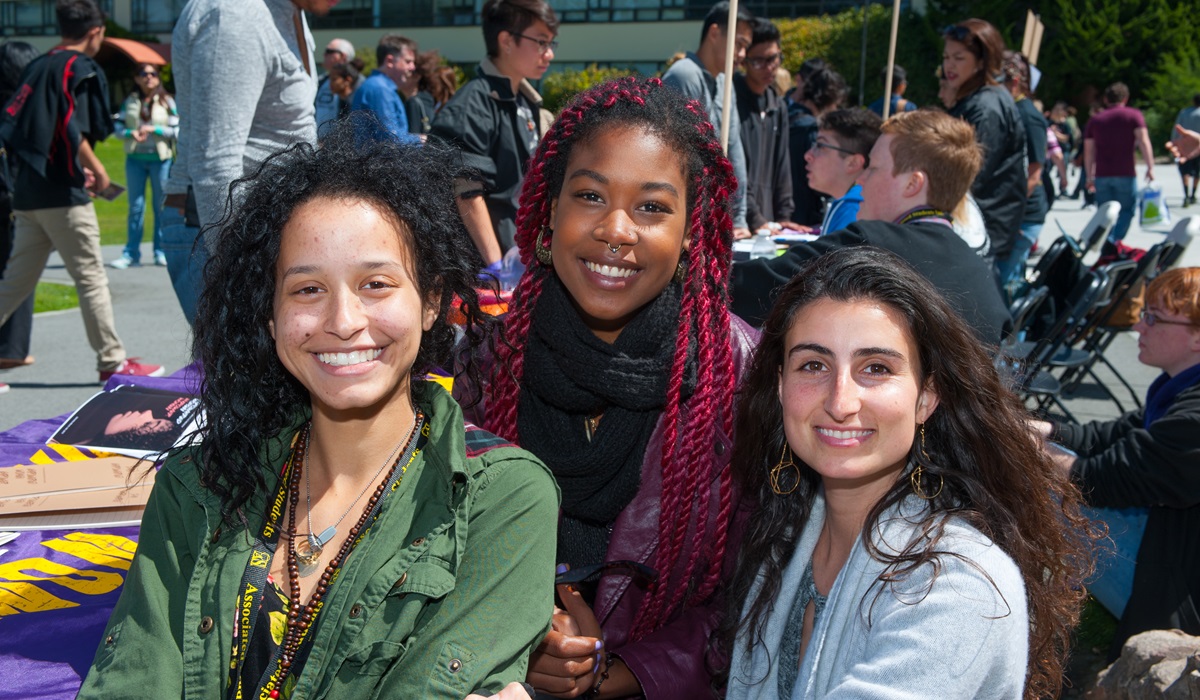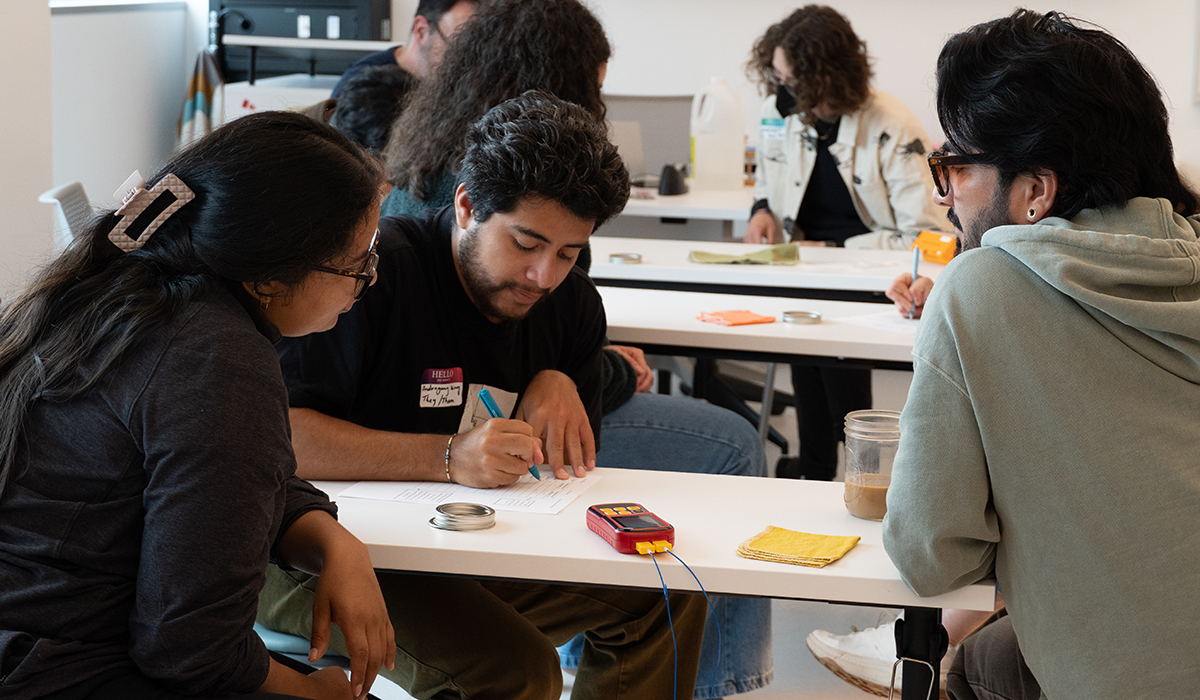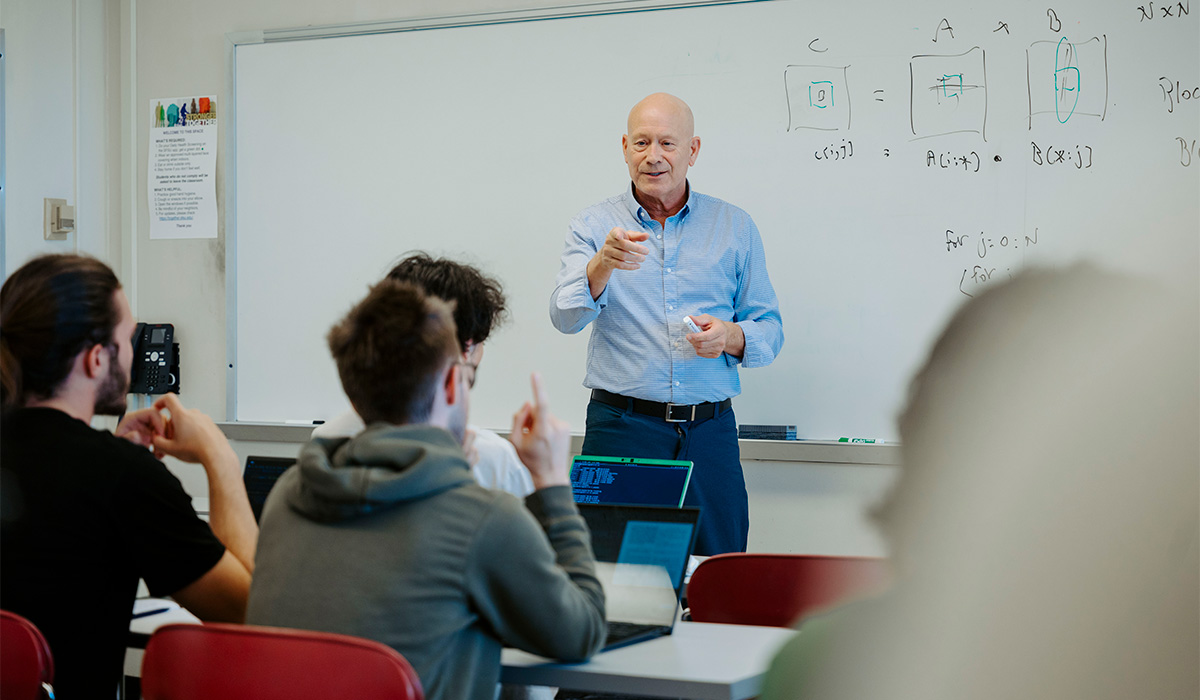SFSU revises graduation requirement to incorporate climate justice
SAN FRANCISCO – Jan. 28, 2025 – San Francisco State University (SFSU) has modified its graduation requirements to better incorporate climate justice, which focuses on the unequal impacts of climate change on marginalized and underserved populations and the ways frontline communities are often leaders in developing just climate solutions.
With this change, SFSU has revised its existing undergraduate Environmental Sustainability (ES) graduation requirement to include climate change and climate justice. The requirement, which is now called Environmental Sustainability and Climate Action (ESCA), officially makes climate justice a key pillar of the University’s curriculum.
“Because SFSU has a long history of social justice and addressing climate change, many of our students are already taking courses that touch on climate justice,” said SFSU Provost and Vice President of Academic Affairs Amy Sueyoshi. “This revision makes our commitment to providing climate justice education official even though we’ve been doing that already.”
This is the first time a major public university has required students to take a course explicitly on climate justice, not just climate change. The revised requirement is also the first of its kind within the California State University system.
The revision, which will be official starting fall 2025, is one of the many steps to better ensure climate justice education is prioritized at SFSU. The goal is that over time, more courses will be certified to meet this graduation requirement.
After completing this requirement, students will be able to analyze the problems and impacts of environmental issues and climate change and identify solutions to address the root causes and impacts of environmental and climate injustices.
“We are responding to the understanding that all jobs in the future will be climate jobs in some way. Our students, no matter their major and no matter their career, need to understand climate change because it is already impacting their lives,” said Autumn Thoyre, co-director of Climate HQ, a University-wide hub for climate-related activities at SFSU. “If you come to SFSU, you will learn about climate change and be ready for it in your career and civic life, you’ll be an informed voter and you’ll be ready for discussions with your family and friends.”
Will the ESCA requirement impact students’ path to graduation?The revision will not change students’ current path to graduation. Courses currently fulfilling the old ES requirement will fulfill the new ESCA requirement. As of the 2024 – 25 academic year, this list includes more than 100 currently certified courses.
The ESCA requirement is an improved version of an already existing Environmental Sustainability (ES) requirement. The change officially requires all certified courses in this category to explicitly incorporate climate change and climate injustice, despite the likelihood that many of these courses already meet this requirement.
The ESCA requirement falls under SF State Studies, which are courses that do not have specific unit requirements. They are meant to ensure that students take a least one course in areas that the campus believes are important to graduate from SFSU. Like in the past, this requirement can still be met by any certified lower- or upper-division course in general education, a major or minor or an elective. While many certified courses are in STEM programs such as Biology and Geography, the list also includes courses in English, Ethnic Studies, History, Humanities and more.
In the future, all ES courses will undergo recertification to ensure they meet the new ESCA standard. Due to the recent approval, any new courses requesting ES/ESCA designation prior to fall 2025 must meet ESCA standards.
“I think it’s likely to bring new courses into the ES/ESCA requirement. For example, more faculty in the Colleges of Ethnic Studies, Liberal & Creative Arts, and Health & Social Sciences might say, ‘Look, we can fit this ESCA category even better than we could before because it matches the content areas students are asking to learn more about,’” said Thoyre.
ESCA origin storySFSU’s Climate HQ was launched to better support climate change and climate justice work happening across the SFSU campus. The hub and its activities are comprised of students, faculty and staff. Two years ago, Climate HQ’s co-directors initiated the process of incorporating climate change into SF State’s general education — institutionalizing that all SFSU students would be informed in climate change-related issues.
Climate HQ already offers certificate programs, internships and fellowships to help SFSU students become leaders who center their work around equity. Their flagship Certificate in Climate Change Causes, Impacts and Solutions — open to all enrolled SFSU students and non-matriculated students — was designed based on student feedback and is intended to be flexible to complement students’ diverse interests. Thoyre notes that many certificate courses — which have to be at least 50% about climate change — already overlap with ES/ESCA courses.
“Since the launch of the climate change certificate, we’ve seen faculty incorporating climate change and climate justice into existing courses so they can be part of the certificate,” Thoyre explained. “Our hope is that the new graduation requirement will have similar effect across campus. We hope people will say, ‘I’d like my course to be ESCA certified’ and they’ll seek ways to integrate climate justice with their course’s content."
Climate HQ activities include a recent panel and brownbag session with bestselling science fiction author Kim Stanley Robinson.
Learn more about Climate HQ and SFSU undergraduate graduation requirements.
Latest SF State News V2
- SFSU undergrad research sheds light on zombie beesAn in-class, on-campus student project explores the impact of a parasitic fly on honeybees
- SFSU named a national leader in helping students move up in lifeThe Wall Street Journal recognizes SFSU as one of the top 25 schools in the nation for social mobility
- Gilead Innovation Initiative opens doors for SFSU student scientistsThe new initiative provides stipends, lab support and opportunities for first-time and emerging researchers
- Discover 2025: See what makes life brighter at SFSU on Oct. 18Prospective students and families can explore campus, meet faculty and students, and learn how SFSU prepares graduates for success
- SFSU offers full scholarships for first-of-its-kind PK-12 certificate in climate justice educationStudents participate in the inaugural cohort for the Graduate Certificate in PK-12 Climate Justice Education program that started summer 2025.
- SFSU is first CSU campus to join IBM Quantum NetworkIBM quantum resources open doors for hands-on learning and workforce readiness








